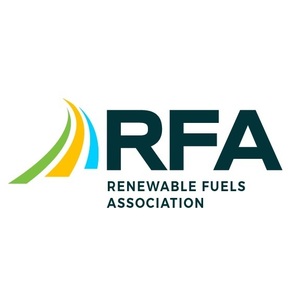RFA: Ethanol is a cleaner fuel for cleaner vehicles

April 18, 2023
BY Renewable Fuels Association
In advance of a Senate subcommittee hearing today on the importance of cleaner vehicles, the Renewable Fuels Association stressed the importance of renewable fuels like ethanol in providing “an effective and immediate solution for reducing carbon emissions from liquid fuels across all segments of the transportation sector.”
This afternoon, the Senate Committee on Environment and Public Works’ Subcommittee on Clean Air, Climate and Nuclear Safety will hold a hearing entitled “Cleaner Vehicles: Good for Consumers and Public Health.”
“We encourage the subcommittee to remember this simple fact: We can’t have clean vehicles without clean fuels,” wrote RFA President and CEO Geoff Cooper in a letter to Sens. Ed Markey (D-MA) and Pete Ricketts (R-NE), who are chair and ranking member, respectively, of the subcommittee. “Fuels and vehicles operate as integrated systems; examining the carbon impacts of one in isolation of the other leads to distorted and flawed comparisons. For example, the carbon footprint of certain battery electric vehicles operating on fossil-fuel generated electricity is no smaller—and can sometimes be larger—than the carbon footprint of modern internal combustion engine vehicles operating on today’s ethanol-blended liquid fuels. It should not be assumed that an electric vehicle is a ‘clean vehicle’ or a ‘zero emissions vehicle’ simply because it does not have a tailpipe.”
Cooper emphasized the pledge made by RFA members to reach net-zero carbon emissions, on average, by 2050 or sooner, and laid out how independent research verifies how the industry is well on the way to that attainable goal:
Advertisement
•According to the Department of Energy’s Argonne National Laboratory, typical corn ethanol provides a 44 percent GHG savings compared to gasoline, even when unverifiable emissions from direct and indirect changes in land use are included.
•When corn ethanol is compared directly to gasoline (i.e., no indirect emissions included for either fuel), Argonne finds that corn ethanol reduces GHG emissions by 52 percent, on average, versus gasoline.
•Similarly, researchers affiliated with Harvard University, MIT, and Tufts University concluded that today’s corn ethanol offers an average GHG reduction of 46 percent versus gasoline.
Advertisement
•The California Air Resources Board has certified that ethanol produced from the cellulosic biomass found in corn generally reduces GHG emissions by 70-80 percent compared to gasoline.
RFA’s letter called on the federal government to work toward low-carbon goals using technology-neutral approaches that promote fairness and consistency in the methodologies used for measuring the carbon footprint of different fuels and vehicles; remove unnecessary regulatory barriers that block the use of higher levels of low-carbon ethanol, such as E15; and provide equitable incentives for the production of all cleaner vehicle technologies—including flex-fuel vehicles that can operate on fuels containing up to 85 percent ethanol.
“Any clean vehicle policies at the federal level should be carefully crafted and designed in a way that avoids picking technology winners and losers, and instead drives the greatest GHG emissions reductions at the lowest cost.”
Related Stories
Marathon Petroleum Corp. on Aug. 5 released second quarter financial results, reporting improved EBITDA for its renewable diesel segment. The company primarily attributed the improvement to increased utilization and higher margins.
Chevron Corp. on Aug. 1 confirmed the company started production at the Geismar renewable diesel plant in Louisiana during the second quarter after completing work to expand plant capacity from 7,000 to 22,000 barrels per day.
California’s new specified source feedstock attestation requirement: A critical new compliance step for renewable fuel producers
As of July 2025, California’s SCFS requires renewable fuel producers using specified source feedstocks to secure attestation letters reaching back to the point of origin. This marks a significant shift in compliance expectations.
The public comment period on the U.S. EPA’s proposed rule to set 2027 and 2027 RFS RVOs and revise RFS regulations closed Aug. 8. Biofuel groups have largely expressed support for the proposal but also outlined several ways to improve the rulemaking.
The U.S. renewable fuels industry on Aug. 8 celebrated the 20th anniversary of the Renewable Fuel Standard. Federal lawmakers also marked the occasion with resolutions introduced in the House and Senate earlier this month.
Upcoming Events










